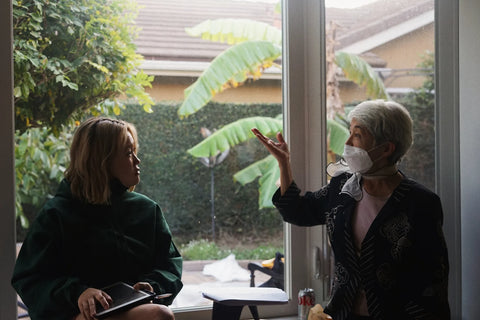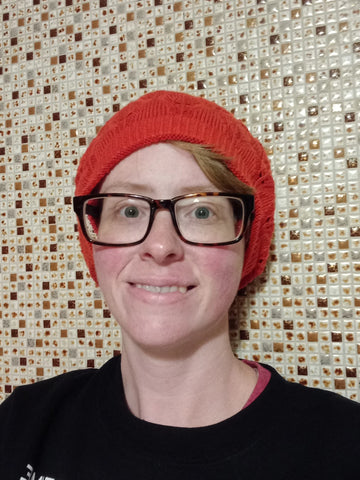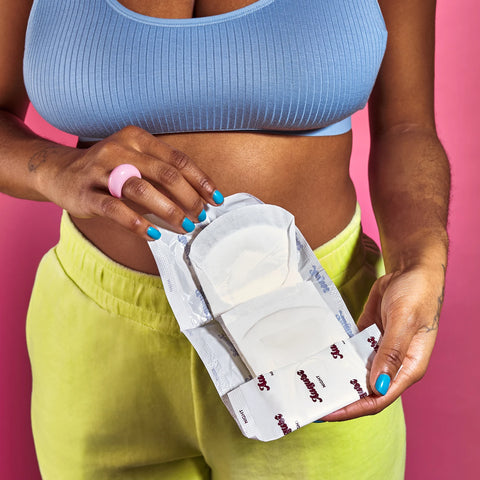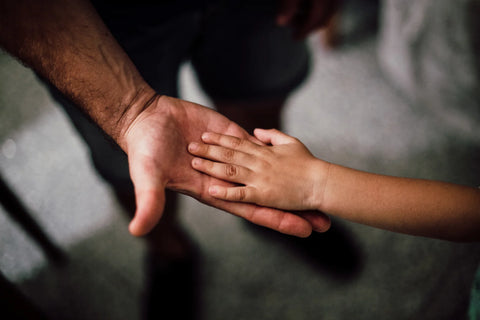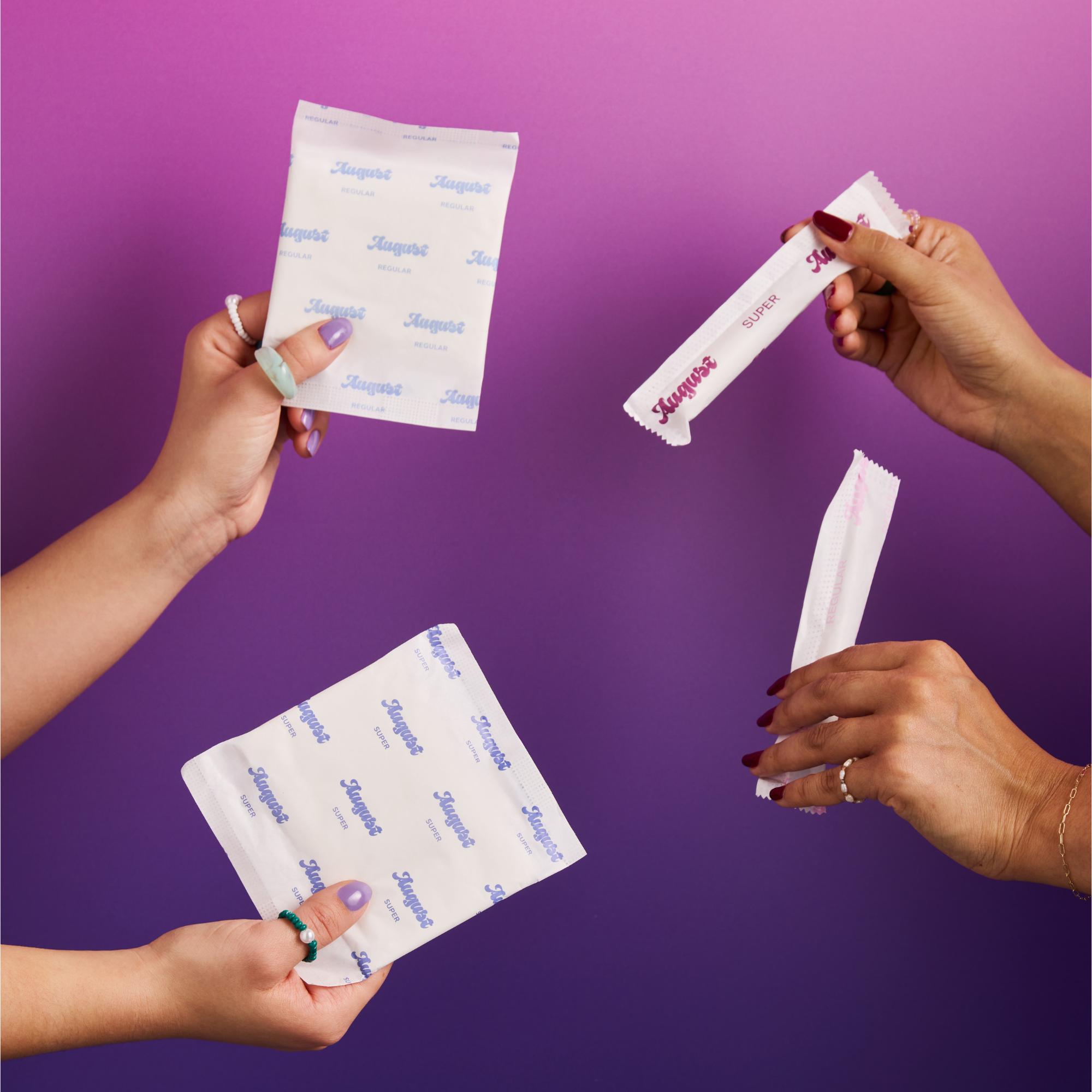1 in 10 people who menstruate have endometriosis.
Perhaps that number could be even higher if the diagnosis didn’t take as long as it currently does.
The average duration for endometriosis diagnosis is 4-11 years.
Now, why would something that causes pain described as “barbed wire wrapped around your insides” take a decade to figure out? Medical gaslighting, misdiagnosis, and a lack of research are all to blame.
Even the American Journal of Obstetrics and Gynecology affirms this saying, “the journey to endometriosis diagnosis is long and fraught with barriers and misdiagnoses.
Medical gaslighting.

WebMD describes medical gaslighting as: “having one’s symptoms dismissed by a health care professional”.
Gas Light is a play from 1938, later adapted into a movie, following the plot of a husband manipulating his wife into questioning her perceptions of reality & her sanity. You can see how this phenomenon is problematic…right?
Many people who go in to see their Ob/Gyn or general doctor feel as though they’ve been medically gaslit after explaining their symptoms.
Isabella Šuta (she/her), a Chronic Illness cartoonist (@uhjeeze), was recently diagnosed with endometriosis in 2022, after having a severely painful period for years.
Isabella didn’t speak up about the pain, since she was repeatedly told that it was normal.
Even her friend narrowed down the painful sex (a common symptom of Endo) to having a “shitty boyfriend”, claiming that, “it would change once [she] found someone who treated [her] right.” Isabella said, “when I finally found that person, nothing changed. I thought I was the problem.”
It was only years later, when a friend of hers was diagnosed with endometriosis, that she thought, “shit, this might actually be affecting me too”.
Misdiagnosis.

Have you ever heard of the ‘Horses’ vs ‘Zebras’ concept taught to MedSchool doctors?
WebMD explains that doctors are taught the following: If you hear hoofbeats, think horses, not zebras.
In theory, this makes sense because it seems like the obvious (???): Medical providers are encouraged to look for the most common medical issue rather than the most exotic diagnosis to someone’s symptoms.
But what if it’s not the most common diagnosis? What if the symptoms of 2 different disorders are just similar…
The common list of symptoms for endometriosis is as follows:
- abnormal or irregular periods
- painful periods but also lower back & tummy pain in general
- painful bowel movements and urination
- painful sex
- fatigue
- bowel habit changes
- nausea and vomiting with your period
- or symptoms related to the implants.
Notably, period pain.
The cause of the pain may be overlooked if the doctor lands on the ‘most common diagnosis’ for period pain: primary dysmenorrhea.
That is, if they even recognize period pain as something worth taking note of. Due to its subjective nature, menstrual pain is often rejected altogether, since we’ve been taught that it’s “just part of the universal menstrual experience”.
So not true by the way… read this to find out why!
Another reason for misdiagnosis of endometriosis, in particular, is due to the fact that confirmation of the disorder can only be done through surgical excision, or an invasive inspection called a laparoscopy.
So, menstruators may be intimidated and discouraged to seek out diagnosis & treatment. Unfortunately, those with mild endometriosis may go their whole lives without even knowing they had it.
This brings us to a lack of understanding – for both health care experts & the average patient.
Lack of research.

By now, we all know that Education is Power. Well, let’s make Endo Warriors and their health care providers feel a little more powerful – bring on the research!
Karen Lutfey Spencer, PhD (she/her) is a sociologist and professor of health and behavioral sciences at the University of Colorado in Denver. She highlights the diagnosis disparities for ‘stigmatized’ conditions (like mental health or, in our case, reproductive conditions) among women, people of color, older people, and queer people. She reports that these health concerns are, “frequently misdiagnosed and their symptoms are more frequently dismissed”.
Historically, most research that informs diagnosis and treatment has been conducted on, and by white cis-men. The assumption, Spencer explains, is that, “what is known about white males will translate into other groups” – but that’s simply not always true.
The lack of solid evidence and information is really disheartening for people looking for management solutions to their endometriosis.
Heather Lawrence (she/her), a 40-year old woman currently seeking out endometriosis diagnosis in the UK said, “every time I go into hospital for a procedure it either confirms or rejects something and that is emotionally testing. I’m constantly thinking, what is going to be the outcome of having endometriosis, if that’s what this is. And will treatments even improve the quality of my life?”
In 2019, the BBC conducted research revealing the “devastating effects” of endometriosis of 13,500 participants. They plan to carry out further inquiry to ensure that people with a uterus are given, not only a voice to share their difficult experiences, but also the data to back it up.
Anna Turley MP, a member of the All-Party Parliamentary Group for Endometriosis told the BBC: “it wasn't until I was hospitalised and had the diagnosis that I realised how little attention endometriosis receives, how limited research funding is, and how many [people] are misdiagnosed."
A call to action:

The most important thing that you can do, whether you have endometriosis or not, is to ask questions about your body – and speak OPENLY about your experience. We can learn from each other and compare to see what is actually "normal" when it comes to things like pain, amount of flow, and how much your period affects your day-to-day routine.
But also, here's a call-in to the researchers & doctors: too often menstruators are left to learn and figure it all out on our own. Let's see some dedicated time spent on period disorders and products that can support us.
To all the Endo Warriors in our community, we see you and we hear you. Don’t ever stop advocating for your well-being.
If you want some tips & tricks on how to approach a visit to the Gynecologist, CLICK HERE!
Struggling with an irregular flow?
Try August’s organic cotton liners to catch surprise leaks.




